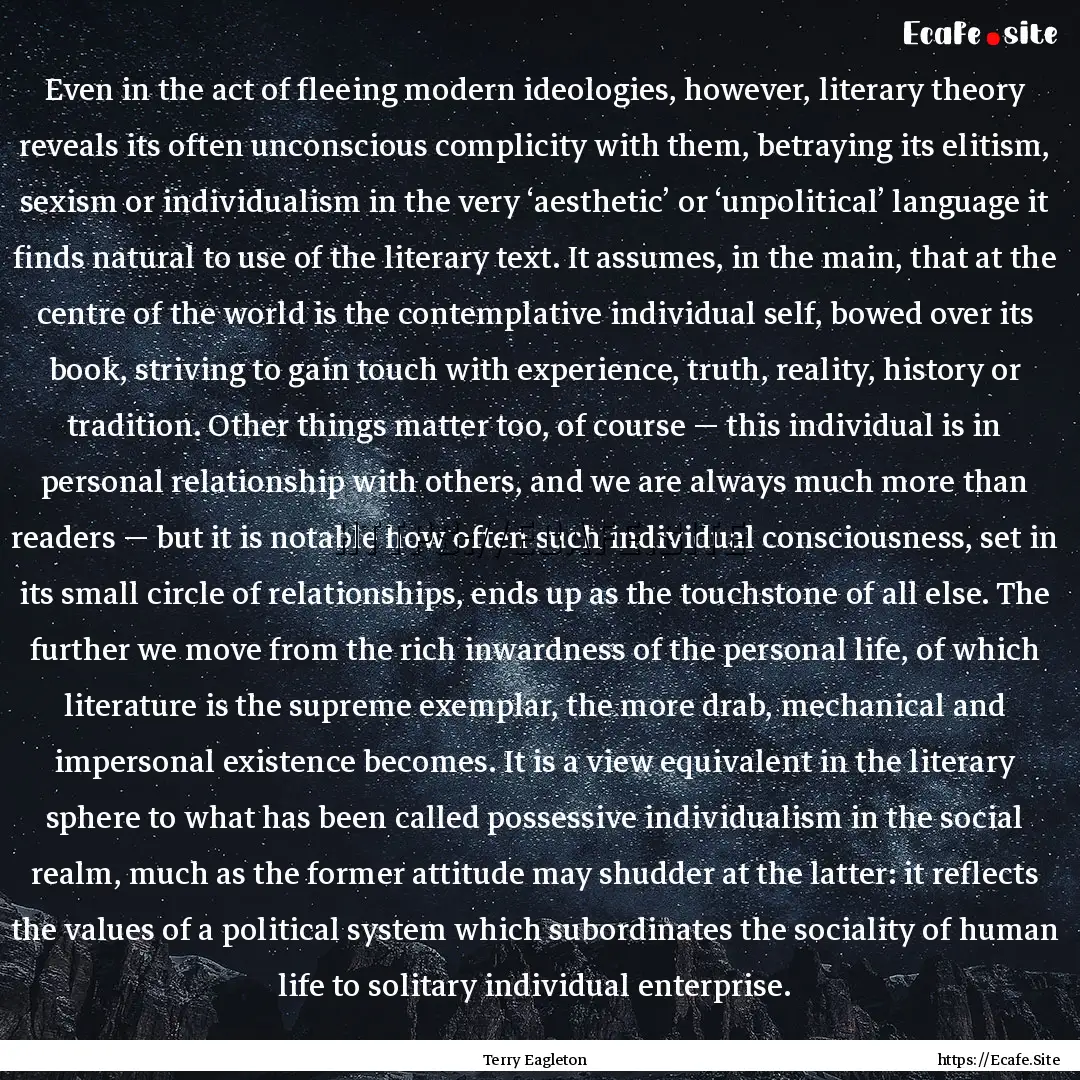
Report, if you have a problem with this page“ Even in the act of fleeing modern ideologies, however, literary theory reveals its often unconscious complicity with them, betraying its elitism, sexism or individualism in the very ‘aesthetic’ or ‘unpolitical’ language it finds natural to use of the literary text. It assumes, in the main, that at the centre of the world is the contemplative individual self, bowed over its book, striving to gain touch with experience, truth, reality, history or tradition. Other things matter too, of course — this individual is in personal relationship with others, and we are always much more than readers — but it is notable how often such individual consciousness, set in its small circle of relationships, ends up as the touchstone of all else. The further we move from the rich inwardness of the personal life, of which literature is the supreme exemplar, the more drab, mechanical and impersonal existence becomes. It is a view equivalent in the literary sphere to what has been called possessive individualism in the social realm, much as the former attitude may shudder at the latter: it reflects the values of a political system which subordinates the sociality of human life to solitary individual enterprise. ”

Terry Eagleton
From : Literary Theory: An Introduction



